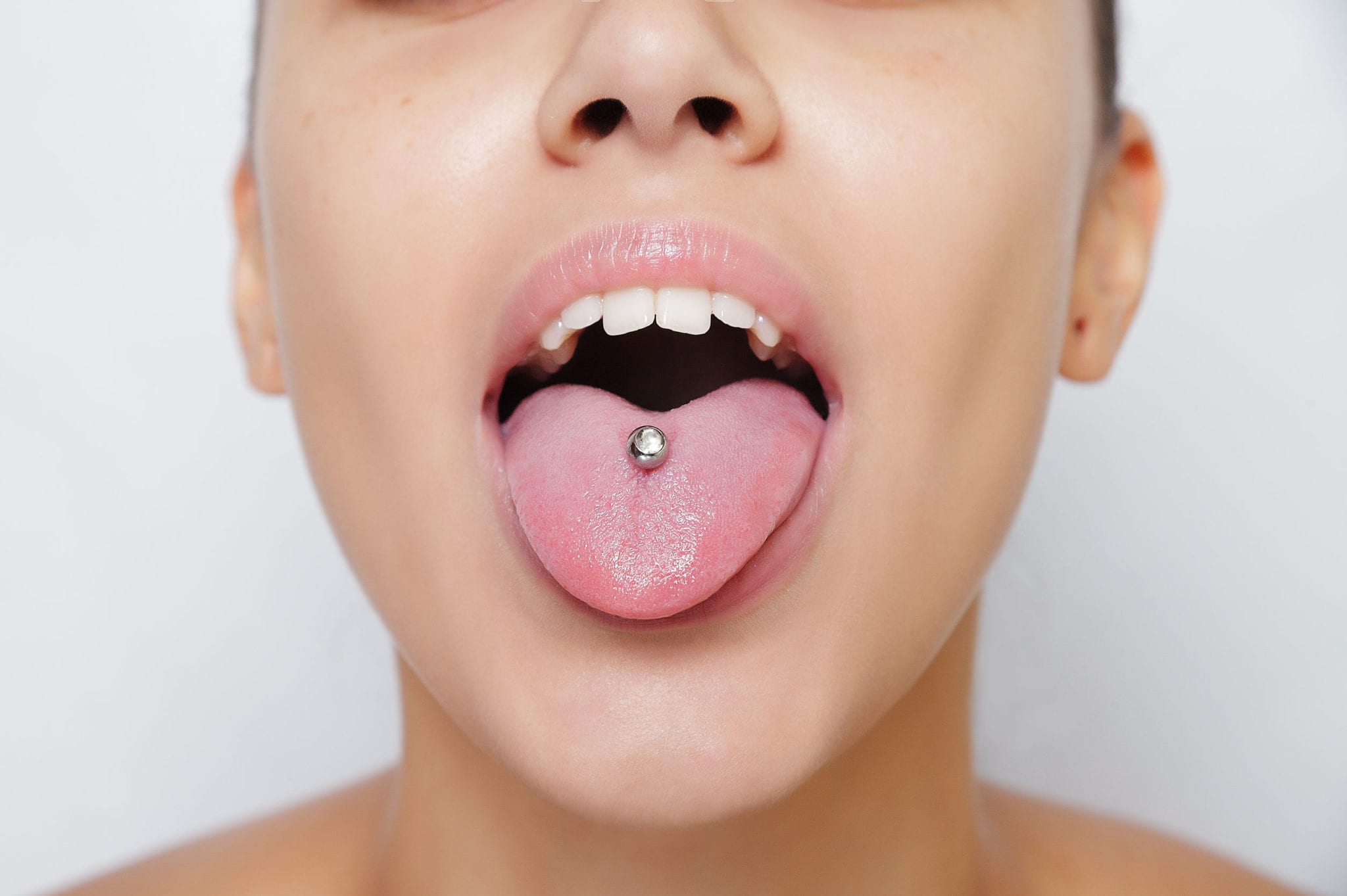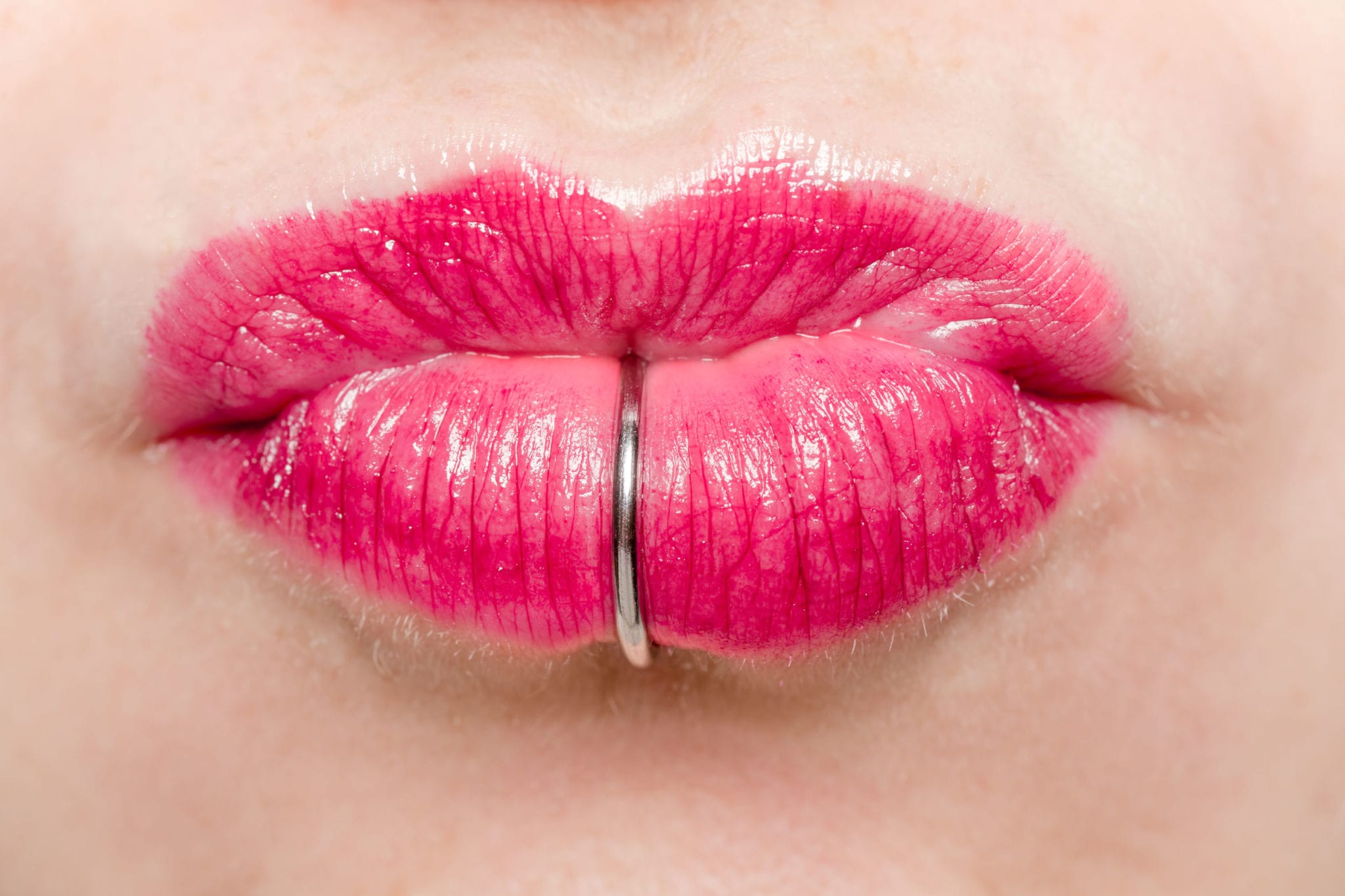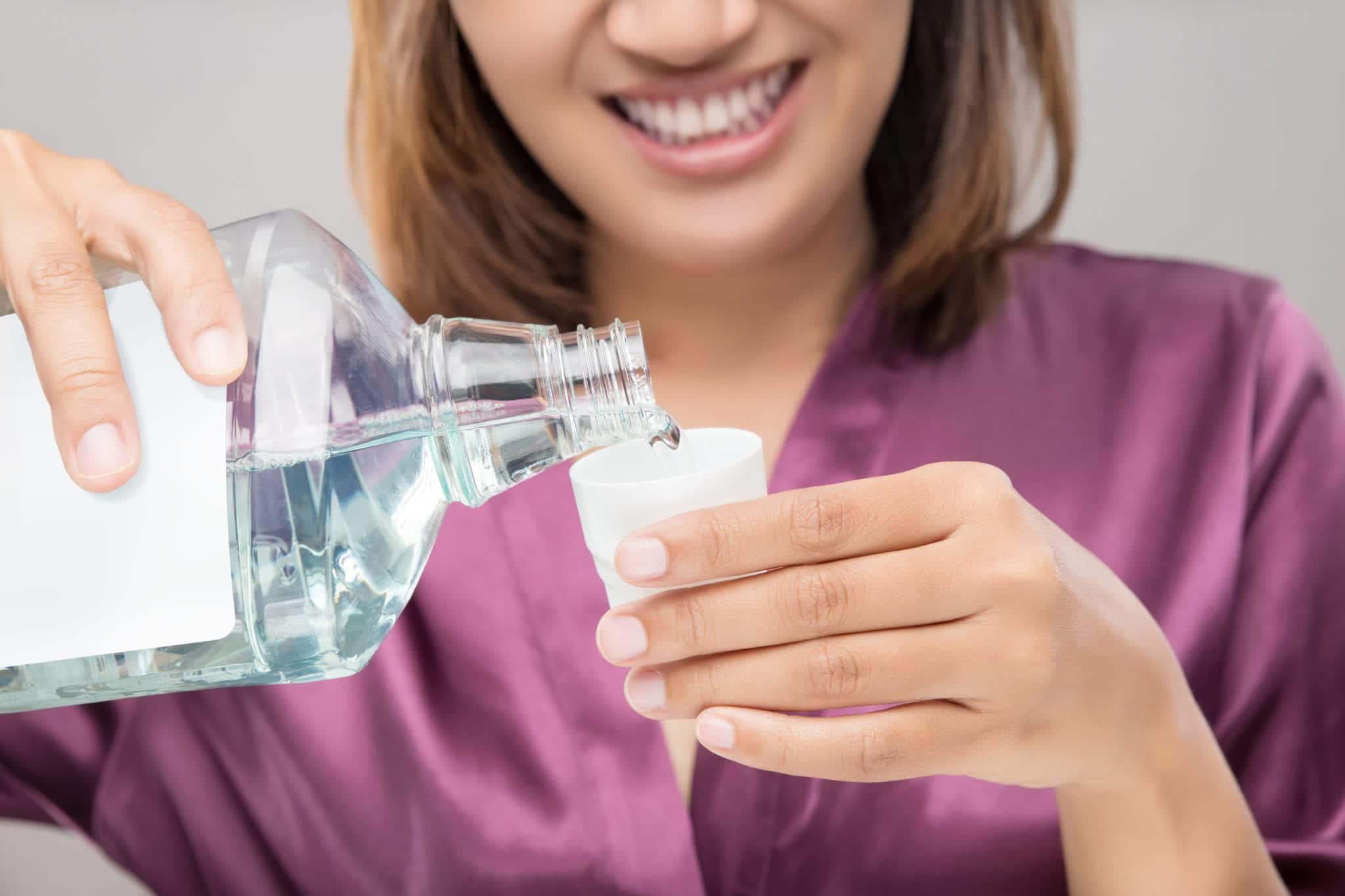
If you recently got a piercing in or around your mouth, it’s important for you to
understand that it’s more than just an accessory – it can actually affect your oral health.
In this post, we’re going to explain what kinds of issues oral piercings can potentially lead to, as well as the best ways to take care of yours to minimize any negative effects.
The Risks of Oral Piercings
Oral piercings have become more popular because people use them to express themselves and establish a certain look. When you take good care of your oral piercings – whether they are on your lips, cheeks or tongue – you have a better chance at avoiding oral health problems.
How exactly can you get health problems from a mouth piercing?
Easy. Your mouth is full of bacteria that helps break your food down for digestion. If these bacteria enter your oral piercings, they can create serious problems. Additionally, jewelry in the oral piercings can damage your teeth if you aren’t careful.
These are the common health risks associated with oral piercings:
Tooth Damage
If you make a habit of clicking your oral jewelry against your teeth, it could chip away at your enamel. Moreover, biting down on jewelry could cause your tooth to crack or fillings to become damaged.
If your tooth is cracked and untreated, you risk losing it. You could also need expensive repairs such as crowns or bridges to correct related problems. Check with your dentist if you notice any damage to your teeth after getting an oral piercing.
Gum Injuries
Playing with the jewelry against your gums can lead to tissue damage. You could experience gum disease, tooth decay, periodontal disease, or tooth loss if your gums are injured by oral jewelry.
Nerve Damage
If you get a tongue piercing, it may deaden some the nerves in your tongue. This can cause a temporary – or even permanent – loss of sensation. It may also alter your sense of taste or cause potentially serious blood loss. If you notice a flow of blood near the piercing site, seek immediate medical attention.
Allergic Reactions
You may not realize you have an allergy to certain metals until you have a piece of jewelry in your oral piercing. If you are allergic, it can cause infection and pain.
Medical-grade stainless steel is often the safest choice for oral jewelry.
Serious Infections

Since your mouth is home to millions of bacteria, it’s possible that your piercing could allow serious infections like hepatitis to enter your blood stream. Endocarditis is another risk, because oral piercings can allow bacteria to travel through your bloodstream to the heart. These infections can be life-threatening.
Swelling
If you develop an infection in your tongue, it could swell to the point that it blocks your airway. Consult with a dentist or doctor as soon as you notice any swelling.
Choking
If your jewelry gets loose, it could create a choking hazard.
The bottom line is that oral piercings require special attention, more than you would normally give to your teeth and gums. To lower your risk of health problems, you will need to take extra precautions in caring for your oral piercing.
What exactly do you need to do to stay safe?
Caring for Oral Piercings
You can fully enjoy your oral piercing if you regularly follow these precautions.
Remove jewelry when eating or playing sports. This helps prevent damage to your teeth due to friction or impact.
After every meal, rinse your mouth with water or mouthwash. Clean the jewelry with a toothbrush before putting it back in the piercing.
It’s important to brush your teeth twice every day and floss once per day to keep bacteria in check and reduce the amount of plaque on your teeth. Extra bacteria can migrate to your piercing site and cause problems.
If your piercing is near your teeth, pay attention to how it feels when you speak or chew.
Try to modify your movements so the jewelry does not click against your teeth or cause tension on the piercing. Don’t make a habit of clicking your jewelry against your teeth or gums.
Regularly inspect your oral jewelry. If any piece has become loose, repair or replace it to avoid choking on the jewelry or accidentally swallowing it.

If you notice red streaks near the piercing site or experience pain, swelling, chills, or fever, you may have an infection in your piercing. It’s essential to seek immediate medical or dental care if you have any of these symptoms.
See your dentist at least twice per year for a thorough cleaning and checkup. Your dentist will inspect the piercing site, treat any problems that may have developed, and work with you to head off any potential problems. He or she will also make suggestions for how you can best care for your oral piercing.






